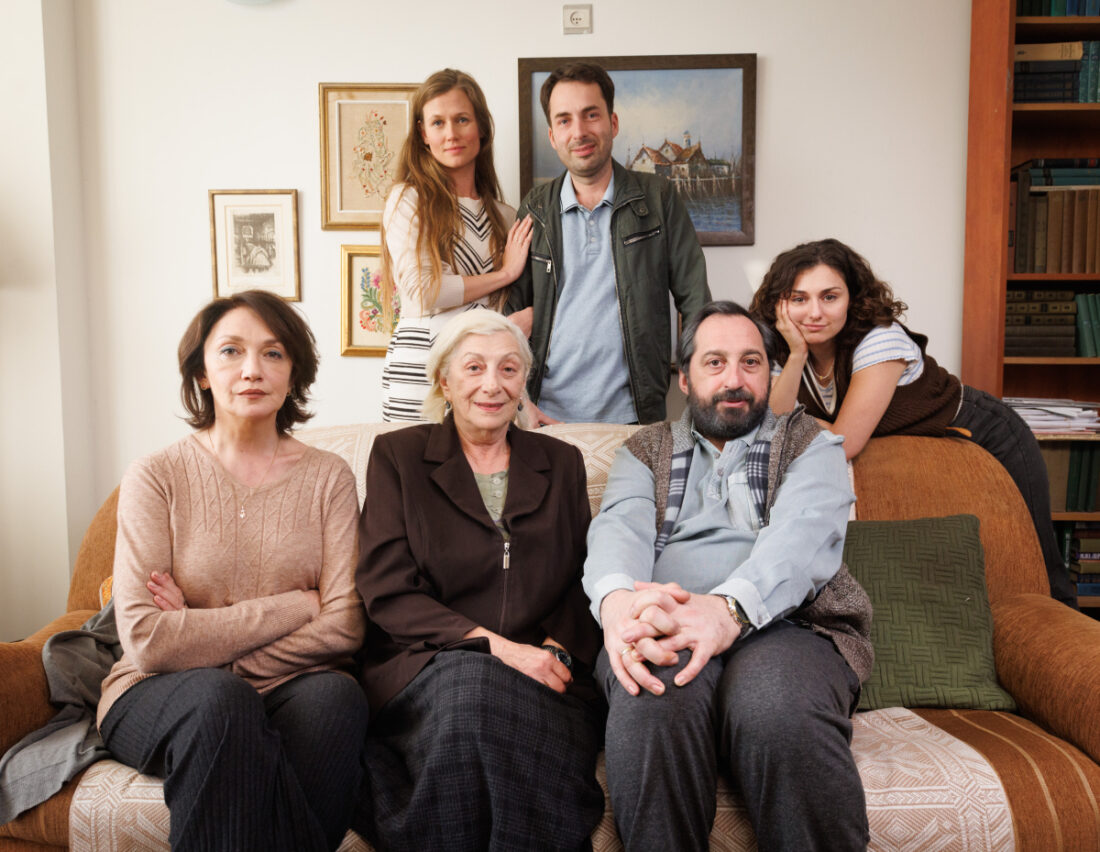Approximately one million Jews from the former Soviet Union have immigrated to Israel in the past 30 years. They have adapted remarkably well to their new environment, but the integration process usually has been bumpy.
Sovietzka, a fresh new Israeli comedy with dark undertones, grapples with this topic through the lens of the Goldenberg family from Azerbaijan, an ex-Soviet republic.
This eight-part series, which is being presented online by the Toronto Jewish Film Foundation until July 1, revolves around a bright university student named Anat Goldenberg (Suzanna Papian). Her parents, Semyon (Gera Sandler) and Ala (Evgenia Dodina), usually call her Anna.
Although Anat was born and raised in Israel, she appears to feel like an abbreviated Israeli. She wants to fit into Israeli society, but her Russian roots take her on a different path.
Anat has a problem with her identity. In the first scene, an elderly Russian woman asks her for bus directions to a hospital. Anat understands her question in Russian, but feigns ignorance and answers in Hebrew. In short, Anat does not want to be seen as a Russian, though she is probably as Israeli as any Sabra.
Her older brother, Stas (Daniel Styopin), seems to be in the same schizophrenic boat. At his son’s circumcision ceremony, he suddenly asks the mohel to stop the procedure, flouting the convention that Jewish males are circumcised. Anat has no objection to his decision, claiming that sex will be more enjoyable for his son when he reaches adulthood. Stas’ wife, Nasti (Lena Fraifeld), however, is upset, while his mother urges him to reconsider.
The difficulties nearly all new immigrants encounter after arriving in Israel are encapsulated in another scene. Semyon, an educated man, has been fired from his factory job without the benefit of unemployment insurance. Determined to correct an injustice, he decides to launch an appeal. Yet he needs Anat’s assistance. Still not fluent in Hebrew after so many years in the country, he asks her to accompany him to a government office, where he will meet a bureaucrat about his case. Semyon’s lack of fluency in Hebrew seems strange, but it is not really that uncommon.

Due to a variety of reasons, some immigrants cannot adjust to Israel and leave after a while, assuming the grass is greener on the other side. This issue emerges when Nasti tells Stas that she wants to emigrate. In a reference to its constant wars, Nasti complains that Israel is not a “normal” country. And indeed Israel is not Switzerland or Sweden. Stas is surprised by Nasti’s desire to live somewhere else, but he appears prepared to pack his bags. His parents are disappointed when they learn about his plan.
In the third episode, Anat embraces her Soviet identity, though her reason for doing remains murky. She is ready to be a Sovietzka, a Soviet woman. Anat believes she should learn about the Soviet past and the Soviet Union’s role in defeating Nazi Germany during World War II.
The fourth segment, during which time Anat socializes with her mostly Sephardi girlfriends at an engagement party, descends into silliness.
Judging by the first four episodes, Sovietzka is mildly entertaining. While its comedic undercurrents are fairly appealing, its primary contribution is providing a viewer with an empathetic understanding of what life is like for an average Russian immigrant in Israel in the 21st century.
